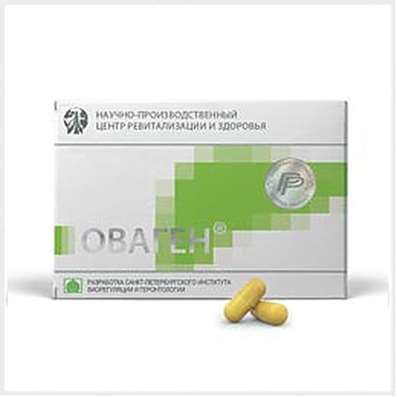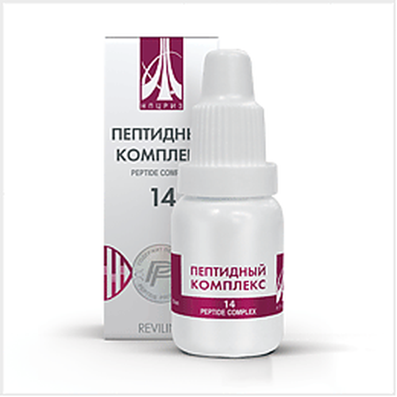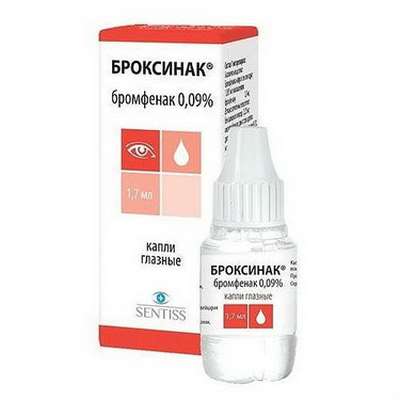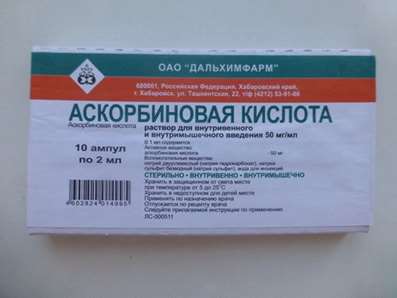Instruction for use: Hydrochlorothiazide + Dihydralazine + Reserpine (Hydrochlorothiazidum + Dihydralazinum + Reserpinum)
I want this, give me price
Pharmacotherapeutic group:
Diuretics in combination
Sympatholytics in combinations
The nosological classification (ICD-10)
I10 Essential (primary) hypertension
Hypertension, Arterial hypertension, Arterial hypertension crisis course, Essential Hypertension
Primary hypertension, Arterial hypertension, complications of diabetes, hypertension, The sudden increase in blood pressure, Hypertensive disorders of blood circulation, hypertensive condition, hypertensive crises, hypertension, arterial Hypertension, malignant Hypertension, Hypertonic disease, Hypertensive crisis, Hypertension, accelerated hypertension, malignant hypertension, The aggravation of hypertensive disease, Transient hypertension, Isolated systolic hypertension
I15 Secondary hypertension
Arterial hypertension, complications of diabetes, hypertension, The sudden rise in blood pressure, Hypertensive disorders of blood circulation, hypertensive condition, hypertensive crises, hypertension, arterial hypertension, malignant hypertension, Hypertensive crisis, Hypertension, accelerated hypertension, malignant hypertension, hypertensive crisis, The aggravation of hypertensive disease, Transient hypertension, hypertension, Arterial hypertension, Arterial hypertension crisis course, renovascular hypertension, symptomatic hypertension, renal hypertension, Renovascular hypertension, Symptomatic hypertension
Pregnancy and breast-feeding
Category effects on the fetus by FDA - C.
Pharmacological action
Combined preparation. Reserpine - sympatholytic, penetrating into the presynaptic terminals postganglionic fibers releases norepinephrine from vesicles with the simultaneous violation of its reverse neuronal uptake and increased MAO inactivation process. It is a neurotransmitter depletion of stocks and sustained reduction in blood pressure. It helps reduce the concentration in the neurons dopamine, serotonin, and others. Neurotransmitters, exerting antipsychotic effect. Weakens the influence of sympathetic innervation in the cardiovascular system, reduce heart rate and total peripheral vascular resistance; retains activity of the parasympathetic nervous system; It deepens and strengthens the physiological sleep, inhibits reflexes interoretseptivnye. Improves gastrointestinal peristalsis, increases the production of stomach HCl; slows metabolic processes in the body; slows and deepens breathing movements, causes miosis, hypothermia; reduces the intensity of metabolism. It has a positive effect on lipid and protein metabolism in patients with hypertension and coronary atherosclerosis; increases renal blood flow, increases the glomerular filtration. Digidralazin - arterial vasodilator, reduces resistance in the blood vessels of the heart, brain, kidney (to a lesser extent - of skin and skeletal muscle) did not affect renal blood flow; It is not accompanied by hypotensive effect of orthostatic hypotension. Hydrochlorothiazide - a thiazide diuretic, acting at the level of the cortical segment of the loop of Henle, increases the excretion of Na +, K +, Mg2 +, Cl- and water, increases the reabsorption of Ca2 +; maximum diuretic effect - 6 hours, duration -. 12 h drug does not cause reflex tachycardia, characteristic digidralazina and hydrochlorothiazide (leveled reserpine), and fluid retention characteristic of reserpine and digidralazina (hydrochlorothiazide is eliminated).
Indications
Arterial hypertension.
Contraindications
Hypersensitivity; depression (including history), Parkinson's disease, epilepsy, electroconvulsive therapy, pheochromocytoma, concomitant or recent treatment of MAO inhibitors, peptic ulcer and 12 duodenal ulcer (in the acute phase), ulcerative colitis, lupus, recent myocardial myocardial infarction, severe tachycardia, heart failure with a high cardiac output (including with thyrotoxicosis) or due to mechanical obstruction (aortic, mitral stenosis, constrictive pericarditis), isolated right ventricular failure due to pulmonary hypertension ( "pulmonary" heart); anuria, severe chronic renal failure (creatinine clearance less than 30 ml / min), hepatic failure; refractory hypokalemia, hyponatremia, hypercalcemia; hyperuricemia with clinical manifestations; pregnancy, lactation, age 18 years.
Precautions
CHF aetiology, AV and intraventricular conduction slowing, recent myocardial infarction, cerebral and coronary atherosclerosis, diabetes, peptic ulcer and 12 duodenal ulcer (in history), erosive gastritis, calculous cholecystitis.
Dosing.
Inside. Starting dose - one tablet per day, gradually increasing to 3 tablets; the maximum daily dose - 3 tablets; maintenance therapy - the minimum effective dose. In hepatic, renal failure (creatinine clearance of 30 ml / min or serum creatinine of 2.5 mg / 100 ml = 221 mmol / l) increase the interval between doses, or reduce the dose.
Side effect
From the digestive system: diarrhea, dry mouth, hypersecretion of gastric juice, hypersalivation, nausea, vomiting, bulimia, gastrointestinal bleeding, jaundice, increased activity of "liver" transaminases, hepatitis.
From the CCC: lowering blood pressure, arrhythmias, angina pectoris, "tides" of blood to the skin of the face, cerebrovascular disorders.
From the nervous system: dizziness, depression, irritability, "nightmarish" dream, fatigue, extrapyramidal disorders (including Parkinson's), headache, anxiety, decreased ability to concentrate, stupor, disorientation; extremely rare - swelling of the brain.
The respiratory system: swelling of the nasal mucosa, shortness of breath, nasal bleeding.
With the genitourinary system: loss of potency and / or libido, ejaculation disorder, dysuria, glomerulonephritis.
From endocrine system: weight gain, hyperprolactinemia, galactorrhea, gynecomastia.
From the senses: blurred vision, conjunctival hyperemia, tearing, decreased hearing.
Allergic reactions: eczema, skin rash, pruritus, lupus-like syndrome, photosensitivity, fever, purpura.
From the side of blood: anemia, leukopenia, thrombocytopenia.
Laboratory findings: hypokalaemia, hyperlipidemia, hyponatremia, hypomagnesemia, hyperuricemia, hypercalcemia, hyperglycemia, Glycosuria, increased metabolic abnormalities in diabetes, gipohloremichesky alkalosis.
Other: swelling of the mammary glands.
Overdose
orthostatic hypotension, headache, dizziness, drowsiness, confusion, coma, extrapyramidal disorders, convulsions, paresthesia, cramps, vomiting, diarrhea, tachycardia, bradycardia, myocardial ischemia, angina, arrhythmia, depression of the respiratory center, water-electrolyte disturbances, myasthenia, cramps in the calf muscles, oliguria.
Treatment: gastric lavage, inside - activated carbon; with a decrease in blood pressure - plasma substituting solutions, correction of electrolyte disturbances, vasoconstrictors; diarrhea - anticholinergic drugs; epilepsy and convulsions - antiepileptic drugs; when respiratory depression - AV.
Interaction
Enhances neurotoxicity salicylates, reduces the effect of oral hypoglycemic drugs, norepinephrine, epinephrine, antiepileptic drugs and levodopa, anticholinergics, drugs that reduce the concentration of uric acid; reduces the analgesic effect of morphine; enhances the effects (including spin), cardiac glycosides, cardiotoxic and neurotoxic effects of drugs Li +, the effectiveness of non-depolarizing muscle relaxant, reduces excretion of quinidine; It strengthens the central action of barbiturates, ethanol, drugs for inhalation anesthesia, antihistamine drugs, tricyclic antidepressants.
It increases the risk of allergic reactions to allopurinol, amantadine; reduces the renal excretion of cytotoxic drugs, increases their mielodepressivnoe action.
Methyldopa increases the risk of depression, tricyclic antidepressants impair hypotensive effect; MAO inhibitors increase the risk of hyperactivity, hypertension; Corticosteroids, ACTH, amphotericin, carbenoxolone, laxatives, drugs - hypokalemia; NSAIDs weaken the diuretic and hypotensive effect; cholestyramine reduces the absorption.
Guanethidine, methyldopa, beta-blockers, vasodilators, BCCI, ACE inhibitors increase the hypotensive effect.
Vitamin D, drugs Ca2 + increase the risk of hypercalcemia, cyclosporine - hyperuricemia, gout.
Special instructions
7 days before the start of electroconvulsive therapy, elective surgery should eliminate the drug; in the case of emergency operations - preliminary enter atropine.
Elderly patients and patients suffering from chronic diseases and cirrhosis of the liver should regularly monitor the blood concentration of electrolytes; in patients suffering from hyperlipidemia, - the concentration of lipids in the blood serum.
When the signs of depression, arthralgia drug overturned immediately.
MAO inhibitors should be discontinued at least 2 weeks prior to the start of treatment.
In appointing the patients with diabetes mellitus receiving insulin or other. Hypoglycemic drugs, may require correction dosing regimen of drugs.
Care must be taken when applying eye drops, nose drops, etc. Drugs, which include alpha-adrenostimulyatorov.
During the period of treatment must be careful when driving and other lesson. Potentially hazardous activities that require high concentration and psychomotor speed reactions.

 Cart
Cart





